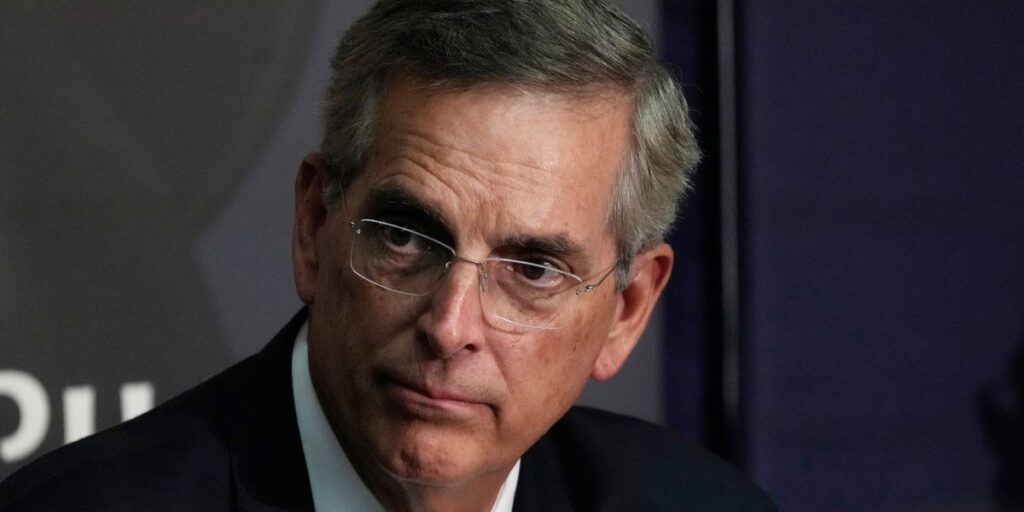Georgia Secretary of State Brad Raffensperger recently urged Elon Musk, the owner of X (formerly Twitter), and other social media leaders to remove a viral fake video that appears to show a Haitian immigrant claiming to possess multiple Georgia driver’s licenses and professing to have voted multiple times in the upcoming 2024 election for Vice President Kamala Harris. Raffensperger suggested that the video is likely a fabrication produced by Russian troll farms aimed at spreading disinformation and discord ahead of the forthcoming presidential election. He emphasized the importance of combating such targeted disinformation which threatens to undermine public trust in electoral processes and institutions.
In his statement, Raffensperger described the video as an example of foreign interference intending to sow chaos in American politics. He highlighted the proactive measures state partners and the federal Cybersecurity & Infrastructure Security Agency (CISA) are undertaking to trace the video’s origin. In light of the evident falsehood and the negative implications of the video’s spread, he called on social media platforms, particularly X, to take prompt action in removing the content to prevent further disruption and confusion among the electorate.
The mention of the video’s persistence on social media despite the original post being taken down indicates the challenge of controlling misinformation online. Recent reports have shown that disinformation campaigns, particularly those associated with foreign actors, remain a significant concern for the integrity of the electoral system in the United States. U.S. intelligence agencies have warned that the Kremlin will likely continue efforts to create media content that instills division among Americans and undermines confidence in the electoral process, calling attention to specific incidents, such as a fake video purporting to show the destruction of mail-in ballots in Pennsylvania.
Raffensperger’s efforts are aimed at reassuring Georgians about the integrity and security of their elections, emphasizing that regardless of partisan differences, all voters should have confidence in the validity of the election outcomes. In an opinion piece for The Atlanta Journal-Constitution, he sought to bolster public trust by reaffirming that the electoral system is secure and that measures are in place to ensure that every legitimate vote counts.
Furthermore, Raffensperger’s appeal for social media platforms to act against the spread of disinformation comes at a time when the reliance on social media for news and information continues to grow. The challenges posed by false narratives circulated through these channels are underlined by the urgent need for collaboration between state officials and technology companies to combat misinformation collectively.
Elon Musk, a prominent figure in contemporary media and politics, has become a significant supporter of Donald Trump. His involvement and influence in the current political landscape raise questions about the broader responsibility of social media leaders to ensure that their platforms are not used as tools for misinformation. As the 2024 election approaches, the call for decisive actions to mitigate the spread of disinformation becomes increasingly pertinent, with officials like Raffensperger advocating for a united stance against those who aim to exploit social media for divisive and deceptive purposes.

